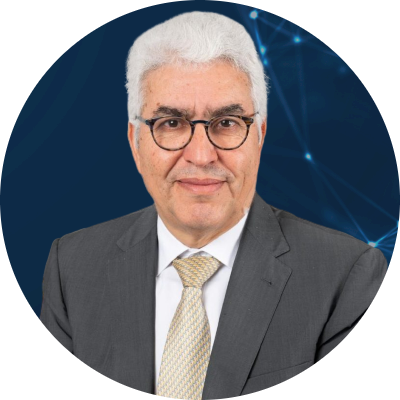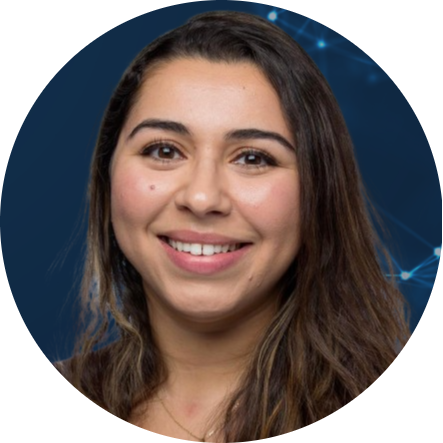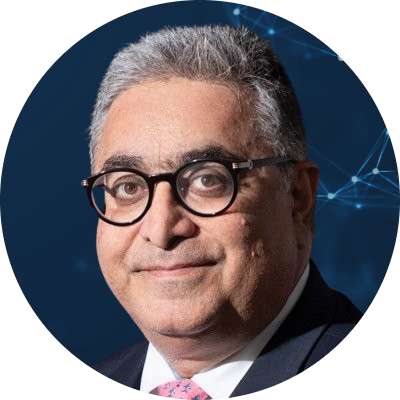Honorary Keynotes

Prof. Michael I. Jordan
University of California, Berkeley, USA
Michael I. Jordan is the Pehong Chen Distinguished Professor at the University of California, Berkeley. His research interests bridge the computational, statistical, cognitive, biological and social sciences. Prof. Jordan is a member of the National Academy of Sciences, a member of the National Academy of Engineering, a member
of the American Academy of Arts and Sciences, and a Foreign Member of the Royal Society. He is a Fellow of the American Association for the Advancement of Science. He was the inaugural winner of the World
Laureates Association (WLA) Prize in 2022.
He was a Plenary Lecturer at the International Congress of Mathematicians in 2018. He has received
the Ulf Grenander Prize from the American Mathematical Society, the IEEE
John von Neumann Medal, the IJCAI Research Excellence Award, the David E.
Rumelhart Prize, and the ACM/AAAI Allen Newell Award. In 2016, Prof.
Jordan was named the "Most Influential Computer Scientist" worldwide in
an article in Science, based on rankings from the Semantic Scholar
search engine.

Emad Mostaque
Stability AI, England
Emad Mostaque is a British entrepreneur and the founder and CEO of Stability AI. Under his leadership, Stability AI has popularized viral AI models like Stable Diffusion, fostered a community of more than 270,000 creators, developers, and researchers, and helped establish several research hubs worldwide. His open access approach to AI seeks to democratize this powerful technology and place it in the hands of everyday people rather than a few powerful corporations.
A problem solver at heart, Mostaque holds a BA and MA in mathematics and computer science from the University of Oxford. He began his career in hedge fund management before working on multiple entrepreneurial endeavors. With his keen ability to spot emerging market trends, he has built the only independent, multi-modal AI company in the world.

Prof. Michael I. Jordan
An Alternative View on AI: Collaborative Learning, Incentives, and Social Welfare
Artificial intelligence (AI) has focused on a paradigm in which intelligence inheres in a single, autonomous agent. Social issues are entirely secondary in this paradigm. When AI systems are deployed in social contexts, however, the overall design of such systems is often naive, a centralized entity provides services to passive agents and reaps the rewards. Such a paradigm need not be the dominant paradigm for information technology. In a broader framing, agents are active, they are cooperative, and they wish to obtain value from their participation in learning-based systems. Agents may supply data and other resources to the system, only if it is in their interest to do so. Critically, intelligence inheres as much in the overall system as it does in individual agents, be they humans or computers. This is a perspective that is familiar in the social sciences, and a key theme in my work is that of bringing economics into contact with foundational issues in computing and data sciences. I'll emphasize some of the mathematical challenges that arise at this tripartite interface.

Emad Mostaque
Special Guest

Prof. Stuart J. Russell
University of California, Berkeley, USA
Stuart Russell is a Professor of Computer Science at the University of California at Berkeley, holder of the Smith-Zadeh Chair in Engineering, and Director of the Center for Human-Compatible AI and the Kavli Center for Ethics, Science, and the Public. He is a recipient of the IJCAI Computers and Thought Award, the IJCAI Research Excellence Award, and the ACM Allen Newell Award. From 2012-14 he held the Chaire Blaise Pascal in Paris. In 2021 he received the OBE from Her Majesty Queen Elizabeth and gave the BBC Reith Lectures. He is an Honorary Fellow of Wadham College, Oxford, an Andrew Carnegie Fellow, an AI2050 Senior Fellow, and a Fellow of AAAI, ACM, and AAAS. His book "Artificial Intelligence: A Modern Approach" (with Peter Norvig) is the standard text in AI, used in over 1500 universities in 135 countries. His research covers a wide range of topics in artificial intelligence, with a current emphasis on the long-term future of artificial intelligence and its relation to humanity. He has developed a new global seismic monitoring system for the nuclear-test-ban treaty and is currently working to ban lethal autonomous weapons.

Prof. Stuart J. Russell
AI and the Future of Work
The implications of advances in AI for human employment are hotly debated, with predictions ranging from rosy scenarios to mass starvation. I show that while there may be temporary increases in human employment, particularly if AI is targeted at unmet needs, in the long run we must expect that almost all of what we currently call work will be done by machines. This leads to what Keynes called "our real, our permanent problem -- how to use our freedom from pressing economic cares to live wisely and agreeably and well." While a universal basic income might avoid mass starvation, much more radical policy measures are needed to avoid a Wall-E world where humans become enfeebled by dependence on technology.
Keynotes

Karim Amor
Morocco
Karim Amor has been an entrepreneur in data management and disruptive technologies for over 30 years.
He is an international speaker on innovation, and the author of the book “Renaissance Now” (January 2024), which sets out the strategic challenges of artificial intelligence for the next 10 years. Eternally curious, Karim regularly completes certifications in the most prestigious global universities and tech think tanks in the fields of advanced AI, biotech and data security.
Karim Amor collaborates with associated researchers in Morocco and around the world to create platforms that accelerate advances in precision metabolic medicine through prevention using AI, quantum calculations, biophysics and computer vision. At the same time, he advocates for global data protection by jointly developing the first patented quantum random key generator hardware solution in Africa.
Karim Amor is also the CGEM president of region 13 (MeM) of the diaspora of Moroccan entrepreneurs and high potentials worldwide .

Dr. Samy Bengio
Apple, USA
Samy Bengio (PhD in computer science, University of Montreal, 1993) is a senior director of machine learning research at Apple since 2021. Before that, he was a distinguished scientist at Google Research since 2007 where he was heading part of the Google Brain team, and at IDIAP in the early 2000s where he co-wrote the well-known open-source Torch machine learning library. His research interests span many areas of machine learning such as deep architectures, representation learning, vision and language processing and more recently, reasoning. He is action editor of the Journal of Machine Learning Research and on the board of the NeurIPS foundation. He was on the editorial board of the Machine Learning Journal, has been program chair (2017) and general chair (2018) of NeurIPS, program chair of ICLR (2015, 2016), general chair of BayLearn (2012-2015), MLMI (2004-2006), as well as NNSP (2002), and on the program committee of several international conferences such as NeurIPS, ICML, ICLR, ECML and IJCAI.

Prof. Mehdi Bennis
University of Oulu, Finland
Mehdi Bennis is a full (tenured) Professor at the Centre for Wireless Communications, University of Oulu, Finland, IEEE Fellow and head of the intelligent connectivity and networks/systems group (ICON). His main research interests are in radio resource management, game theory and distributed AI in 5G/6G networks. He has published more than 300 research papers in international conferences, journals and book chapters. He has been the recipient of several prestigious awards including the 2015 Fred W. Ellersick Prize from the IEEE Communications Society, the 2016 Best Tutorial Prize from the IEEE Communications Society, the 2017 EURASIP Best paper Award for the Journal of Wireless Communications and Networks, the all-University of Oulu award for research, the 2019 IEEE ComSoc Radio Communications Committee Early Achievement Award and the 2020-2022 Clarviate Highly Cited Researcher by the Web of Science.

Prof. Hamid Bouchikhi
ESSEC Business School, France
Hamid Bouchikhi is a professor and chair of the department of management at ESSEC Business School. His research interests are in managerial innovation, organizational identity and entrepreneurship. His works were published in books and articles in national and international academic and professional journals.Currently, Hamid is investigating the managerial and organizational implications of the diffusion of AI in organizations.For his past works, he received the prize for the best research in SME management (France, 2009) and for the best professor of Organizational Behavior (World Human Resources Congress, Mumbai, 2011). In 2014, the MIT Sloan Management Review awarded him the Richard Beckhard Memorial Prize for an article on identity integration in mergers and acquisitions. In 2021, Thinkers 50 named him among the '30 influential management thinkers'.Hamid Bouchikhi was a visiting professor at the Wharton School of the University of Pennsylvania (USA) in 1995-96 and 2002-03. He taught at Keio University in Tokyo and at University Putra Malaysia in Kuala Lumpur.Hamid Bouchikhi was Dean of SolBridge International School of Business (South Korea) and member of the Special Commission on the Development Model (CSMD) appointed by His Majesty, The King of Morocco in November 2019. His Majesty appointed him in November 2022 to the High Council on Education, Training, and Scientific Research. He was elected to the Council's executive committee. In September 2022, Woxsen University (Hyderabad, India) set up the Hamid Bouchikhi chair on managerial innovation and appointed Prof. Kakoli Sen as the first chair holder.

Michael Conway
VP of Content, United States
Michael Conway is the Vice President of Content at Udacity, and has also served as Director of Enterprise Content, head of content's program management office (PMO) and as a senior program manager for Udacity's School of Autonomous Systems. Before Udacity, Mike worked in east Africa for Bridge International Academies, where he served as the Director of Operations to Bridge's network of over 400 low-cost primary schools in Kenya and Uganda. He has also spent parts of his career in west Africa where he served as a Peace Corps volunteer and later started a non-profit organization, a Place in the Sun Foundation, to promote literacy through early childhood education in Mali. Mike holds a Master of Public Policy from the Harvard Kennedy School of Government where he focused on international education and a BSBA in Economics and BS in Psychology from the University of Florida.

Prof. Adji Bousso Dieng
Princeton University, USA
Adji Bousso Dieng is an Assistant Professor of Computer Science at Princeton University where she leads “Vertaix” on research at the intersection of artificial intelligence and the natural sciences. She is affiliated with the Department of Chemical and Biological Engineering, the Princeton Materials Institute, The Princeton Quantitative and Computational Biology, and the High Meadows Environmental Institute (HMEI). Prof. Dieng is also a Research Scientist at Google AI and the founder and President of the nonprofit The Africa I Know. She has been named an AI2050 Early Career Fellow by Schmidt Futures, an Outstanding Recent Alumni by the Columbia Graduate School of Arts And Sciences, and the Annie T. Randall Innovator of 2022 for her research and advocacy by the American Statistical Association. She received her PhD from Columbia University where she was advised by David Blei and John Paisley. Her doctoral work received many recognitions, including a Google PhD Fellowship in Machine Learning, a rising star in Machine Learning nomination by the University of Maryland, and a Savage Award from the International Society for Bayesian Analysis, for her doctoral thesis.

Prof. Mounir Ghogho
International University of Rabat, Morocco
Mounir Ghogho received his PhD degree in 1997 from the National Polytechnic Institute of Toulouse, France. He was an EPSRC Research Fellow with the University of Strathclyde, from Sept 1997 to Nov 2001. In Dec 2001, he joined the University of Leeds, where he was promoted to full Professor in 2008. While still affiliated with the University of Leeds, in 2010 he joined the International University of Rabat where he is currently Dean of the College of Doctoral Studies and Director of TICLab. He is a Fellow of IEEE and AAIA (Asia-Pacific AI Association), a recipient of the 2013 IBM Faculty Award, and a recipient of the 2000 UK Royal Academy of Engineering Research Fellowship. His research interests are in Machine Learning, Signal Processing and Wireless Communication. He has coordinated around 20 research projects and supervised over 50 PhD students in the UK and Morocco. He served as Associate Editor of many journals including the IEEE Signal Processing Magazine and the IEEE Transactions on Signal Processing, and as member of many IEEE technical committees.

Dr. Maha Gmira
United Nations, Morocco
Dr. Maha GMIRA is an Expert specializing in Artificial Intelligence Strategies and Gender at the United Nations for Development. Formerly, she served as the head of the Artificial Intelligence engineering school at EUROMED University of Fez. Her educational background includes a bachelor's degree in engineering, a Master's in Mathematics, and a PhD in Artificial Intelligence from Polytechnique Montréal, Canada. Her doctoral studies were conducted in one of the world's leading centers of excellence in artificial intelligence, specifically under the Canada Excellence Chair in Data Science for Real-Time Decision Making, IVADO, CIRRELT, GERAD, among others.
Prof. Maha GMIRA actively participates in various research projects, focusing on areas such as Mobility, Agriculture, and Smart Manufacturing. On May 17, 2021, ICESCO and EUROMED University of Fez established the "Women in Science: Artificial Intelligence and the Future" Chair, with a specific focus on the field of artificial intelligence. This prestigious chair was entrusted to Prof. Maha Gmira. The primary objective of this initiative is to encourage the participation of girls and women in the realm of AI while fostering research collaborations with the industrial sector. The aim is to attract more PhD students, particularly females, to engage in artificial intelligence studies.
In November 2021, the African Scientific Research and Innovation Council (ASRIC), an entity of the African Union, honored Prof. Maha Gmira with a Flagship Project. This pilot initiative in Africa concentrates on the application of artificial intelligence in agriculture, aiming to enhance food security across the continent. Morocco is leading this project in collaboration with Rwanda, Egypt, Botswana, and Nigeria. In 2022, she obtained a Horizon Europe project, which deals with artificial intelligence in Agriculture, with a budget of more than 1.4 million Euros.

Prof. Touradj Ebrahimi
EPFL, Switzerland
Touradj Ebrahimi is professor of image processing at Ecole Polytechnique Fédérale de Lausanne (EPFL) and active in teaching and research in multimedia signal processing. He is the Director of Multimedia Signal Processing Group at EPFL. Since 2014, he has been the Convenor of the JPEG standardization Committee which has produced a family of standards that have revolutionised the world of imaging. He represents Switzerland as the head of its delegation to JTC1 (in charge of standardization of information technology in ISO and IEC), SC29 (the body overseeing JPEG and MPEG standardization) and is a member of ITU as the main representative of EPFL.
Prof. Ebrahimi is also involved in Ecma International as a member of its ExeCom. He serves as consultant, evaluator and expert for European Commission and other governmental funding agencies in Europe and advises a number of Venture Capital
companies in Switzerland in their scientific and technical audits. He has founded several startup and spinoff companies in the past two decades, including the most recent RayShaper SA, a research startup company based in Switzerland involved in AI powered multimedia.
His areas of interest include image and video compression, media security, quality of experience in multimedia and AI based image and video processing and analysis. Prof. Ebrahimi is a Fellow of the IEEE, SPIE, EURASIP and AAIA and has been recipient of several awards and distinctions, including an IEEE Star Innovator Award in Multimedia, an Emmy Award on behalf of JPEG and the SMPTE Progress medal.
Prof. Ebrahimi is an initiator and a leading member of the JPEG AI and JPEG Trust standards with the aim of developing and specifying an interoperable solutions based on AI technologies as well as mechanisms to bring trust back to media world. Prof. Ebrahimi is a highly cited researcher with an H-index of 80, inventor of 15 patents and over 500 publications.

Mohamed Saad
Casablanca Stock Exchange, Morocco
Mohamed SAAD, Digital Evangelist, Deputy CEO at the Casablanca Stock Exchange, in charge of IT, Finance, HR. Administrator within the Risk Committee of the Moroccan Pension Fund (CMR) Member of the Board of Directors, the Audit & Risks Committee, and the Strategy and Technology Committee of the Casablanca Stock Exchange. Past-President of AUSIM (Association of Information Systems/Digital Users in Morocco) from 2015 to 2022. He has operated in the IT services, industry and finance sectors. On the associative level, he is a founding member of Isaca-Casablanca, the Moroccan chapter of ISACA (CHICAGO, US), Vice-President of CCAM (Moroccan Business Continuity Club), and Speaker at several national and international Universities. Mohamed SAAD holds an engineering diploma from INSEA, an Ecec-MBA, and several international certifications. Mohamed SAAD is the author of several columns in the world of Digital and Information Technologies. He is also Chairman of the “Disruptive Technologies” Working Group within the African Stock Exchange Association (ASEA).

Karim Amor
AI-Quantum Convergence to Ignite Our Renaissance
How will Ai in convergence with Quantum technologies disrupt climate, health, and living costs, influencing personal choices? How will global governments, address regulation challenges, balancing innovation with ethical, privacy, and societal concerns? This future tests our resilience and adaptability, with our collective decisions shaping a world where technology can either lead progress or challenge our core existence.

Dr. Samy Bengio
Generalization on the Unseen
This talk considers the learning of logical (Boolean) functions with focus on the generalization on the unseen (GOTU) setting, a strong case of out-of-distribution generalization. This is motivated by the fact that the rich combinatorial nature of data in certain reasoning tasks (e.g., arithmetic/logic) makes representative data sampling challenging, and learning successfully under GOTU gives a first vignette of an 'extrapolating' or 'reasoning' learner. We then study how different network architectures trained by (S)GD perform under GOTU and provide both theoretical and experimental evidence that for a class of network models including instances of Transformers, random features models, and diagonal linear networks, a min-degree-interpolator (MDI) is learned on the unseen. We also provide evidence that other instances with larger learning rates or mean-field networks reach leaky MDIs. These findings lead to two implications: (1) we provide an explanation to the length generalization problem (e.g., Anil et al. 2022); (2) we introduce a curriculum learning algorithm called Degree-Curriculum that learns monomials more efficiently by incrementing supports.

Prof. Mehdi Bennis
Wireless Edge Intelligence: Present and future
This talk will first start by presenting some recent results in distributed edge intelligence over/for wireless networks. Subsequently, a new vision, referred to as VisionX, sitting at the intersection of semantic (post-Shannon) communication and machine learning will be presented. At its core, instead of transmitting data that is either redundant, stale or useless to a receiver to carry out a task, only learned semantic representations are exchanged among agents to solve a downstream task. These representations constitute the basis for enabling 6G wireless communication systems.

Prof. Hamid Bouchikhi
AI, the administration of things, and the government of people
As AI agents gain rapidly increasing decision making capabilities, we must put extra care in thinking of and designing their 'employment' in organizations. The gist of this talk is a conceptual framework which may, hopefully, help managers make informed decisions about the allocation of decision making rights to AI agents.
In the past, one can fairly state that technological advances improved decision making in organizations and made them more productive and efficient. While this seems true also for AI, a growing group of prominent AI scientists, thought leaders, and policy makers have been warning about the risks of unfettered development of AI and unquestioned implementation of its advances.
While a cautious and measured approach to the implementation of AI is generally accepted, actionable guidelines, others say guardrails, are needed to help managers make decisions about the 'employment' of AI agents.
The framework I will lay out in the talk is grounded in the distinction made, in the 19th century, by Frederick Engels and Auguste Comte between the administration of things and the government of people. I will show how this distinction can help managers in making intelligent decisions about artificial intelligence.

Michael Conway

Prof. Adji Bousso Dieng
The Future Of The Scientist's Work In The Age Of AI
AI has penetrated many areas of society, especially in domains related to natural language and image processing. AI is also slowly penetrating the sciences, e.g. chemistry and materials science. In this talk, I will do an overview of how AI is being used in the natural sciences, the pitfalls that need to be avoided for AI to make a positive impact in those domains, and the role that accounting for diversity in AI can play in that.

Prof. Mounir Ghogho
Efficient AI insights
I start by delineating the reasons for adopting Frugal AI and elucidating the fundamental design principles that form the basis for its implementation. Following that, the focus shifts to a pivotal design principle: efficiency. Within this realm, I explore noteworthy research approaches, shedding light on machine learning strategies that I believe hold promise for advancing efficient AI. Finally, I briefly touch upon ongoing work within a Horizon EU project on edge AI, showcasing tangible instances where these efficient AI techniques are actively applied in real-world scenarios.

Dr. Maha Gmira
Deep Q Network Method for Dynamic Job Shop Scheduling Problem
Dynamic Job Shop Scheduling Problems (DJSSPs) have received increased interest from researchers in recent decades. However, the development of reinforcement learning (RL) approaches for solving DJSSPs has not been fully realized. In this presentation, we will present how we have used Deep Reinforcement Learning (DRL) approach on DJSSP to minimize the Makespan. A Deep Q Network (DQN) algorithm is designed with state features, actions, and rewards.

Prof. Touradj Ebrahimi
AI-powered standards in visual information representation for humans and machines.
Artificial Intelligence (AI) has brought new paradigms in many fields including in computer vision and computer graphics. Examples include Image interpretation as in face recognition, or synthetic imaging as in deepfakes and generative AI. The use of AI in image processing and coding has also shown unparalleled performance when compared to conventional methods, as witnessed by the use of end-to-end autoencoders for image compression and deep learning for image enhancement such as in super resolution and denoising. This talk will start with a discussion around two important observations: 1) Until recently visual information acquisition, processing, storage/delivery, and display were designed in a human centric manner because in large majority of applications the consumer of the visual information was a human. This is no more the case and there is an acceleration of the use of visual information in applications where no humans are in the loop, which in turn has led to new approaches to visual information workflows that are machine centric. 2) AI-powered synthetic media have become increasingly undistinguishable from real content captured by cameras, and this has initiated new approaches in detection of synthetic content as well as annotation of authenticity and tracking. Building on these observations, we analyze both positive impacts of such solutions and their challenges. The talk will end with an overview of emerging JPEG standards that allow to take full advantage of AI-powered visual information (e.g. JPEG AI) while at the same time addressing their challenges (e.g. JPEG Trust).

Mohamed Saad
The Future of work at the dawn of AI
In this rapidly evolving landscape, AI is reshaping traditional job roles, automating routine tasks, and unlocking unprecedented opportunities for innovation and efficiency. Our journey will navigate the collaborative synergy between humans and machines, emphasizing the pivotal role of AI in augmenting human capabilities and fostering a more fulfilling work experience. From predictive analytics optimizing talent acquisition to the ethical considerations of responsible AI practices, we'll unravel the multifaceted impact of AI on the workforce. The seamless integration of remote work is being accelerated by AI, revolutionizing virtual collaboration tools and ensuring connectivity beyond geographical constraints. As we envision the future workplace, strategic planning and a commitment to continuous learning emerge as linchpins, enabling organizations to adapt and thrive. The results of a Survey concerning “The Future of work” in Morocco will be shared with the audience.
